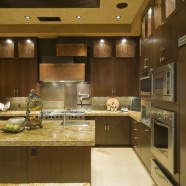Energy Conservation Tips for Your South Florida Business
Going green may be trendy, but it’s also one of the best ways to lower energy costs for your south Florida business. The heat and humidity may mean that your air conditioning has to run all day long, but other energy conservation methods can make a big dent in the money you have to pay out at the end of the month.
Your Building
The environment in and around your building can have a big effect on how much energy you use each day. In south Florida, the biggest challenge is keeping the interior cool and less humid. The air conditioner is one of the most expensive appliances you can use, so anything you can do to reduce the amount of time it’s running will save you money.
Keep the hot sun from coming inside during the warmest parts of the day. This usually means covering the windows in some way. Window film darkens the glass and prevents the sun to heat the interior. It works exactly like shaded glass in a car, stopping the interior from heating up in the hot sun.
Landscaping can be a green addition to your property in more ways than one. Planting trees or tall shrubs in front of windows can shade the windows from the sun during the summer. Use evergreen trees or shrubs instead of deciduous types, since even the winter can be hot and humid during most of the year in south Florida. The landscaping can increase your building’s value as well as helping with energy conservation.
Your HVAC System
A system in good running condition is always less expensive to use, since it doesn’t have to work as hard to get the same results. Keep your HVAC system in great running order by getting a tuneup done early each spring. Create a maintenance agreement with your local contractor so that, in addition to the first-of-the-year tuneup, he’ll also maintain the system on regular visits throughout the year.
Change the filters in your system yourself. If you’re not sure where the filter is, your contractor can show you. Changing the filter is usually a matter of sliding one filter out and sliding a new one in place, which takes just a few seconds to finish. Since filters only cost a few dollars, this may be the most cost-effective step you can take in terms of energy conservation.
A New Business
If you’re designing and planning a new business, you have the advantage of using green building methods from the start. You’ll be able to keep energy costs low by adding conservation goals into your project and adding low-energy products in every part of the business.
Lighting is one of the biggest users of electrical power, and the wrong kind of lighting can be the biggest waste of energy in your business. Newer LED lighting can save significant amounts of power over the year. Not just for desk lamps, you can use LED bulbs in every part of your lighting scheme.
- LED lights in parking lots give a more even coverage over the entire lot
- Task lighting over work desks give more light while using less energy
- Landscape lighting can be a design as well as safety feature, and can run on pennies a day
Choose the equipment in your new business with an eye toward energy conservation. Pick laptops over desktop computers. Look for an EnergyStar rating for kitchen appliances. Add power strips so you can turn off banks of appliances with one flick of a switch. Build fans into the ceiling to reduce the amount of air conditioning needed. Add windows with tinted glass, and reduce the size of the windows in the building.
Need more information on how to keep your business premises cool in summer? Contact us now.
Read MoreGet Money Back from Tax for Installing a Home Standby Generator
Florida is known as the lightning capital of the country, and between lightning, tropical storms, hurricanes and accidents, power outages are a frequent fact of life. If it’s short-lived it may be just an inconvenience, but if your health or business rely on a steady source of power, even the briefest outage can be a severe problem. The best way to ensure you have a steady source of power is to install a home standby generator.
In addition to the obvious advantages of having a reliable power source, you can also use some of the cost of a generator as a deduction on your federal income tax. With three different ways to take advantage of the tax code, it’s likely that you can find at least one way to deduct a portion of the costs of installing a home standby generator.
Capital Gains Tax Credits
As with all the advice in this post, check with a tax attorney or accountant to determine your individual tax liability and the ability to use any credits. If you sell a home and purchase a new one within a certain amount of time, you’ll avoid paying a capital gains tax on the sale of your old home. If you’ve done this more than once, however, you may still owe taxes on the capital gains. Selling a home and not buying another one will automatically cause you to be liable for the taxes, but if you’ve installed a whole house backup generator, you may be able to take a capital gains tax credit, reducing your tax bill at the end of the year.
Energy Tax Credits
The federal government subsidizes renewable energy such as wind and water, but many states will give you an energy tax credit if you install a natural gas, whole-house generator. This is because natural gas is a greener fuel, creating less of a carbon footprint. If you opt for a home standby generator that has the ability to run on biofuel such as that created in landfills, you may be eligible for an additional tax credit or even an alternate fuel grant. Your state energy department will have all the information needed available for you and your accountant.
Medical Needs
If your doctor will verify that a continuous supply of power is crucial for your health and well being, you may be eligible for a tax credit for your generator. You’ll need to itemize your deductions at the end of the tax year. Once itemized, every bit of legitimate medical expenses over the legal limit, which is 7 to 10 percent of your gross income, is deductible. The power has to be a crucial factor for keeping either you or a family member alive and healthy, and you’ll have to include a certified letter from a medical doctor detailing the medical condition and swearing that a constant power supply is a medical necessity. Depending on your income, you may be able to write off some or even all of the expense of having a backup generator installed in your home.
Natural Disasters
While not a tax deduction, FEMA does offer reimbursements for electrical generators in case of a national or local emergency. The program starts when your governor declares a state of emergency, and it will continue until the power comes back on. Have your whole house backup system installed or buy a portable generator during that time, and you can be eligible for getting the entire cost of the generator reimbursed.
There are multiple ways to reduce the cost of installing a home standby generator, but the benefit of having reliable power is priceless. Call us today to discuss how we can help meet your needs while saving you money.
Read MoreHow to Choose the Right Electrical Contractor for Your Needs
If you’re looking for an electrical contractor in south Florida, you’ll find a confusing array of companies to choose from. How do you find the right electrical contractor for the job? You could Google “electrician” and hope for the best, but that’s not likely to get great results. A little bit of research and common sense questions will go a long way toward finding the right contractor for your particular electrical project.
Your Project
Figuring out what you need to have done will go a long way toward deciding which electrical contractor is right for you. If you’re looking to add lightning protection to your residential electrical system you’ll need an electrician with different experience and education than one who specializes in adding backup power supplies to large businesses. Your electrical contractor in south Florida will probably have experience in multiple areas, but no one can specialize in every aspect of a job. Narrowing down the scope of your proposed project is the first step in deciding which contractor to hire.
Experience on the Job
Knowledge and experience go hand in hand when it comes to technical jobs. The longer an electrician has been actively working, the more situations he has dealt with and the more types of jobs he’s successfully completed. No job site ever went perfectly smoothly, so having an experienced contractor on the job increases the odds that he’s seen the problems before and know how to deal with them. Experienced electrical contractors also know enough about different jobs to give you advice in the planning stage of your project. Whether you’re looking for energy savings or a simpler way to do a job, a contractor with a proven track record has the knowledge to give you intelligent advice.
Paperwork
Ask any prospective contractor to provide you with copies all pertinent paperwork related to the job. These will include:
- Electrician’s license
- Specialty job certificates such as for State Licensed Gas Contractor
- Insurance paperwork, both for your job and the workers on site
- Certificates of completion from any specialty education he may have
If a contractor refuses to give you copies of any of these when asked, turn and walk away no matter what discounts or deals he offers. A deal isn’t a deal if the work is shoddy, or worse, dangerous.
The Workers
Once you hire an electrical contractor in south Florida, how can you be sure who is working in your house or business? Does the electrician have a crew he works with on a daily basis, or will he be contracting out some of the work. There’s nothing wrong with subcontractors, especially when it comes to specialized jobs, but it’s a good idea to know who will do the job ahead of time. The contractor’s insurance may not cover subcontracted labor, he will most likely not have done background checks on them, and unless it’s a team he works with frequently he won’t be able to vouch for them.
If all the work will be done by the contractor’s employees, ask if he’s done background checks on them, how long he’s been working with each person, and the experience of each worker. You’re going to let these people in your home or business; you have the right to know exactly who you’re letting inside.
References for An Electrical Contractor in South Florida
Any experienced electrical contractor with a history of satisfied customers will be happy to provide you with references. Once you have the list in hand, call or email each person on the list and ask about their experiences with the contractor. Find out about the length of time the job took, whether the contractor did what was promised, and whether they were satisfied with the job. Knowing a contractor has a long string of successful prior jobs is a great indication that he’ll do a good job for you, as well.
Read More7 Great Kitchen Lighting Ideas to Consider
One of the least expensive ways to make a big impact with your home renovation project is by changing your kitchen lighting. By just switching out the lamps and adding new lights in different places, you can completely change the mood of the room. Go from plain to pizzazz by trying one of these unique kitchen lighting ideas:
Idea #1: Under Cabinet Lights
Install a set of lights underneath your kitchen cabinets. These lamps add ambient light to the room, plus can serve as task lighting for kitchen prep work. Attach the electrical wiring against the bottom of the cabinet and you can have the entire system installed without drilling holes or breaking into the walls. A modern looking makeover for minimal money, this decorating scheme is as practical as it is attractive. It’s most effective if you use smaller lights that hide behind decorative molding, beaming down on the counter without being seen.
Idea #2: Use Chandeliers
The more elaborate, the better. Be it crystal or stainless steel, modern or antique, a chandelier adds just enough personality to make your kitchen pop. This option is great if you’re renovating your kitchen. You can have your residential electrical contractor install this instead of the same old boring kitchen lights that have graced every ceiling you’ve seen since childhood. Chandeliers are just different enough to show off your decorating style, yet they do the job of lighting up the room perfectly. Bright enough to light kitchen tasks and large enough to spread ambient light throughout the room, look to living room lighting fixtures to find your next kitchen lighting.
Idea #3: Set the Stage
Every kitchen’s got a few spots that get all the attention: the sink, that portion of the counter that holds a cutting board perfectly, maybe a spot right next to the oven. Instead of relying on ambient lighting to get the job done in these spots, install some bright task lighting dedicated to lighting up these areas. Have your contractor install them on separate switches so you can turn them on only when needed. You’ll have a safely lighted area for cutting and other kitchen duties.
Idea #4: Go Eclectic
Can’t decide which lamp you like the best? Why choose? Pick one similar element like creamy shades or brass fixtures and install a variety of hanging lamps that almost go together. Not for formal dining rooms and kitchens, the eclectic lighting scheme fits in with free spirits and confident decorators. This combination often looks like a custom designer did a rich decorating job on your home. Only you will know the truth.
Idea #5: Battery Back-Ups
Home renovations in south Florida, especially those in kitchens and other frequently-used parts of the house, often include lighting that works during one of the many power outages that the area is known for. Emergency lighting doesn’t have to look like the lamps on your corner store’s wall.
Idea #6: Go Retro
Haunt thrift shops and yard sales for old kitchen lighting fixtures from the 60’s or earlier. Vintage is hot, and it might even inspire you to redo your kitchen with an entirely new retro theme. Have a residential electrical contractor inspect the fixtures to make sure they’re safe and in good working condition before he installs them in your room. If the wiring is worn, get the lamps repaired, leaving the decorative outside alone.
Idea #7: Made in the Shade
Give your kitchen makeover a pop of color. Get rid of the plain old white shades that every kitchen fixture has. Paint yours a bright primary color or something in a deep jewel tone. Decoupage designer fabrics to the outside. Glue on bright coins or small game pieces. Turn your lighting into a conversation piece simply by adding a crafty shade filled with your personality.
Read MoreComparing a Standby Generator With a Portable Generator
Power outages are a fact of life in Florida, where there are more lightning strikes per square mile than in any other state. While most blackouts last an hour or less, enough of them last longer that it can become a significant problem. If you have health issues or run a business that relies on a constant source of electrical power, a power outage can be a real danger. This is where a backup power supply comes in.
Backup supplies come in two forms: a standby generator and a portable generator. Both of them convert fuel into electrical power to keep the lights and appliances running on your property. Although a portable generator is less expensive to own, it isn’t a good choice for backup power in your home or business. Unlike portable generators, a built-in standby generator is built for long time use.
Powering a Generator
Portable generators run on gasoline which has to be stored on your property if you want to have it on hand when the power goes out. In a blackout, the pumps at the gas station won’t work, so you have to store your supply ahead of time. This is dangerous many even be illegal in your community. In addition, a portable generator will need to be refilled every few hours, during bad weather or even in the middle of the night.
A standby generator, on the other hand, will run for days on either natural gas or propane. Either one of these fuels is readily available in the absence of electrical power, and you don’t have to worry about dangerous storage problems or about gas getting stale and having to be replaced. The generator will turn itself on when the power goes out, and you don’t have to worry about keeping a fuel supply running to the unit.
Generator Safety
Portable generators can never be run indoors or directly up against your building. They have to be faced away from your structure and an extension cord is used to run power from the unit into your house or business. Combine frequent refueling with extension cords stretching across your property in bad weather and you’ve got an uncomfortably dangerous situation.
With a standby generator, toxic fumes aren’t a concern because your electrical contractor will permanently install it a safe distance from your building. There’s no need to worry about fueling because it will be permanently attached to your home fuel supply. Instead of needing dangerous extension cords strung across your yard, a permanent electrical installation will keep your standby generator attached to the building and ready to supply power when needed.
Risk of Theft
It’s a sad fact but during long-term power outages, one of the biggest problems is people stealing portable generators, usually in the middle of the night. The loud noise is a tip-off to would-be thieves, as are the bright lights shining in an otherwise dark neighborhood. All a thief has to do is to unplug the extension cord and wheel your portable generator away.
If you have a standby generator built into your property, theft won’t be an issue. They’re much less noisy, but, more importantly, yours will be permanently attached to your power and gas lines as well as the base foundation. Thieves like easy work, and pulling out a heavy standby generator is the last thing they’ll want to do when an easy portable unit is probably available somewhere in your neighborhood.
Read More





Recent Comments